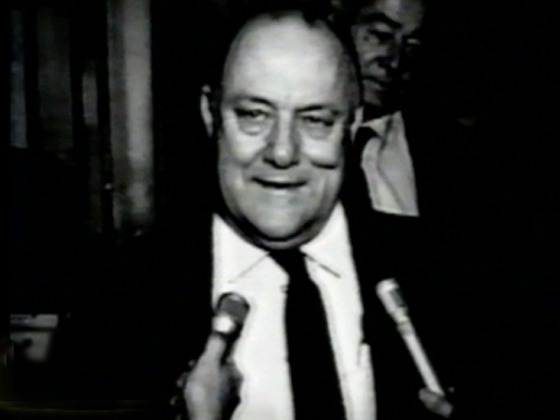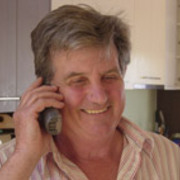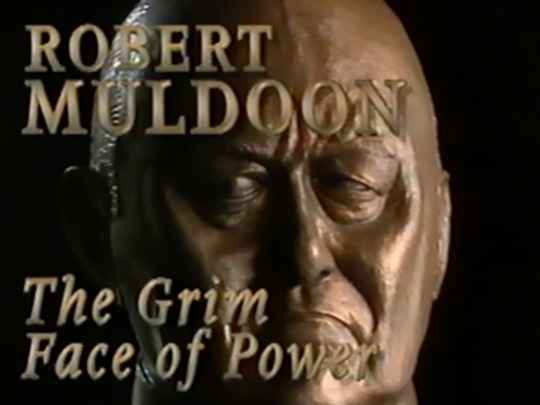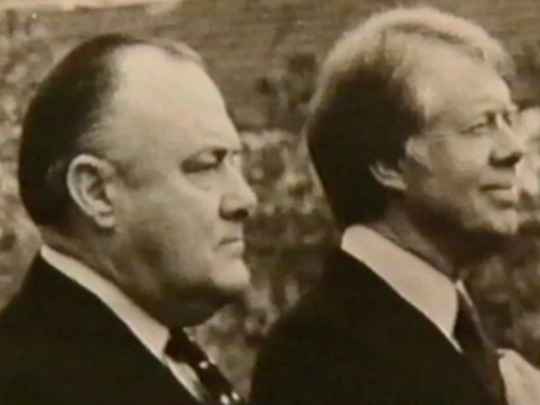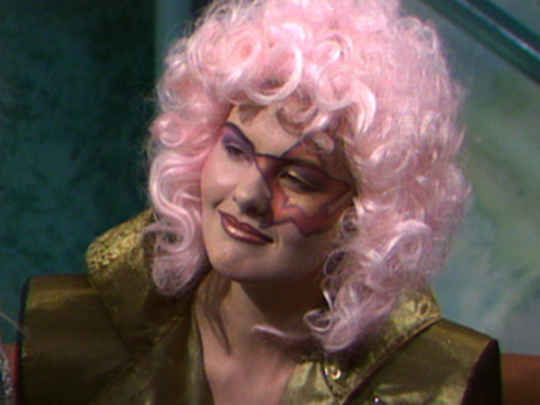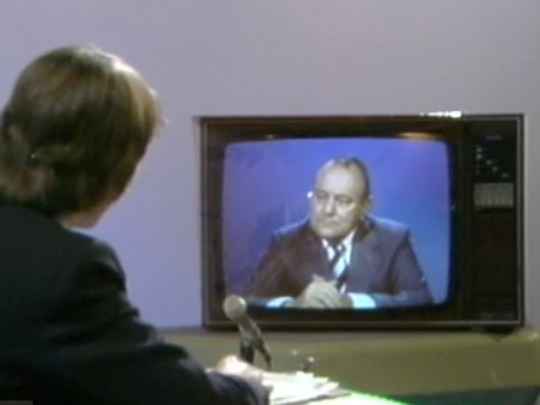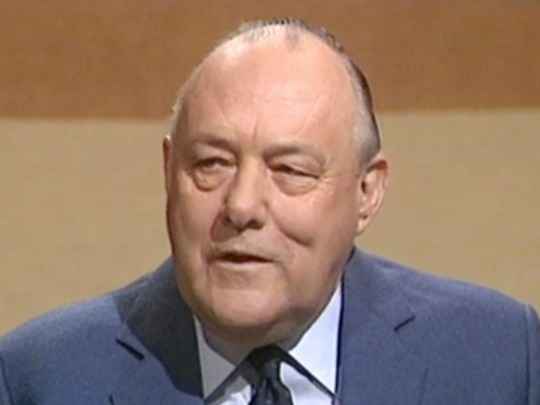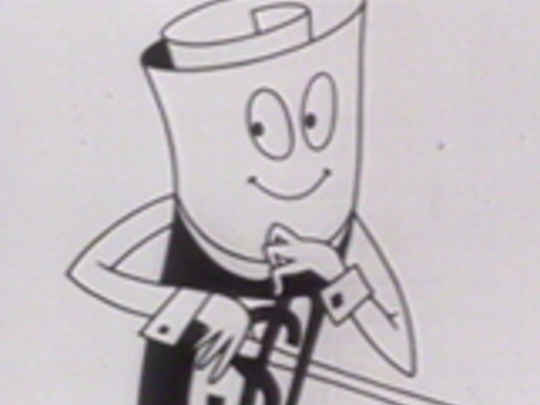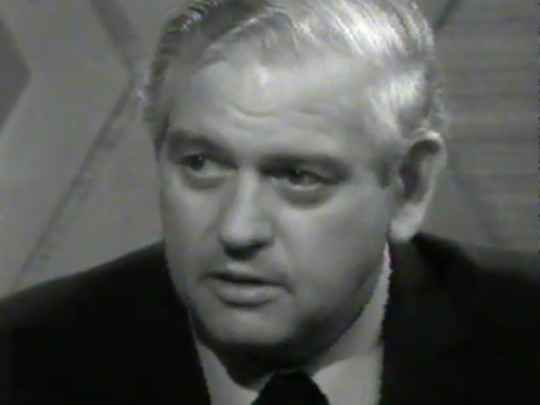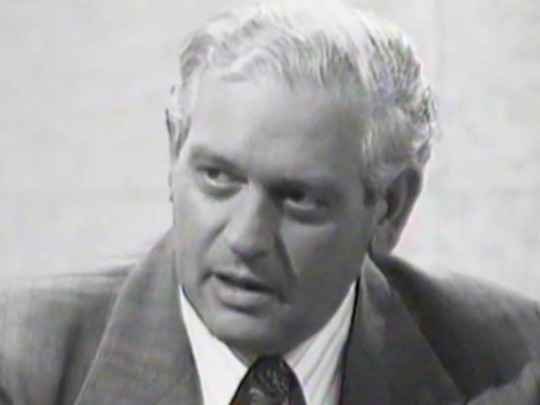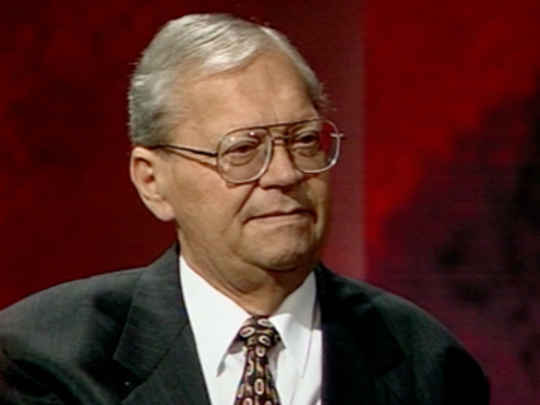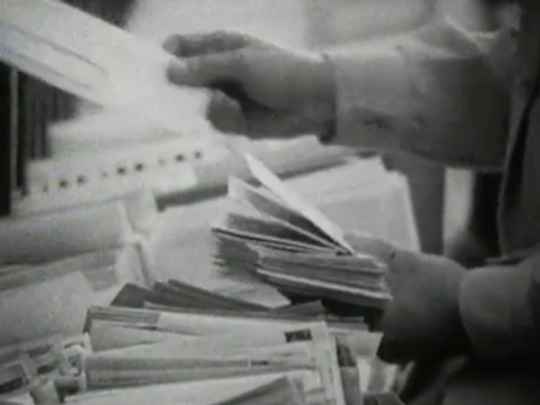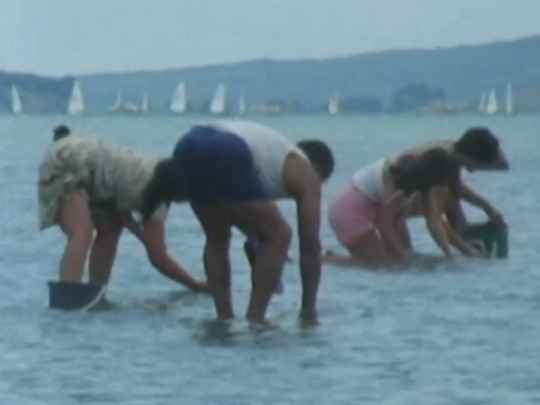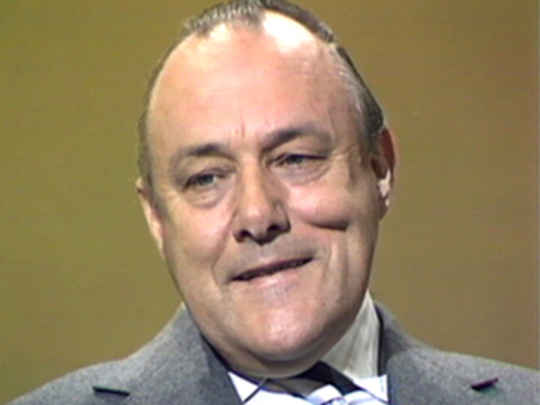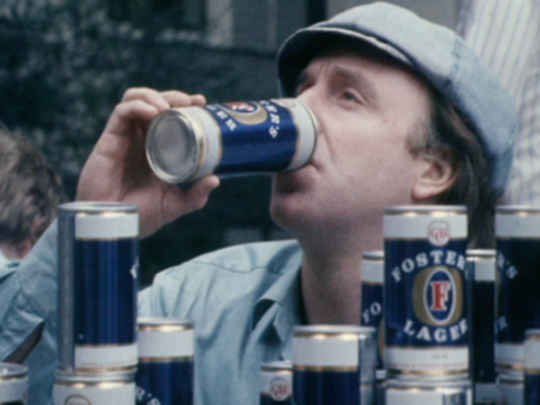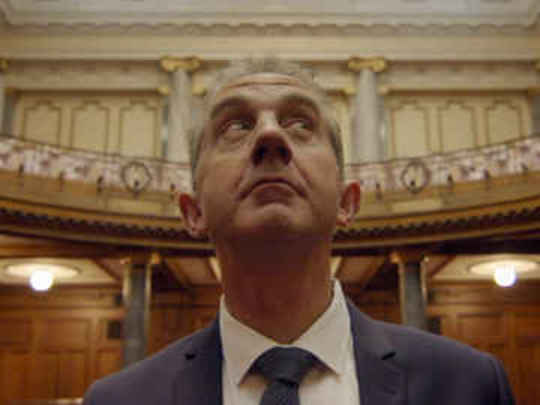Robert Muldoon: The Grim Face of Power - Part One
Television (Full Length Episode) – 1994
The Tale of Two Channels and an Election
1975 was for some the best of times. For others it became the worst of times.
Forty years ago New Zealand felt two small earth tremors.
One was the initiation of two competing TV channels. Although both were Government owned, the staff had almost pathologically decided to fisticuff for audiences.
The second was a general election to be held in November of that year. Due in the main to the success of gaining high ratings for the new channels, the election became the first in New Zealand’s history to be strongly influenced by TV.
The Prime Minister was Labour’s Wallace (Bill) Rowling who had taken the job twelve months previously after the death of Norman Kirk. In the right’s corner was Robert Muldoon. The newly formed Broadcasting Council had decided that TV One and South Pacific Television would give each of the two leading political parties’ absolutely equal time (to the second). Other parties with more than 30 candidates would also have equal time to one another, but no more than 20% of the main party’s allocation; rules that were obviously put together by the accounts department, as they were totally impractical from the get go. With the realisation that it was an almost impossible task, each channel nominated one of their staff as the contact person to resolve problems directly with the politicians.
I was the chosen one for South Pacific Television (TV2).
I had joined South Pacific in August 1975 to direct children series Hunters Gold, but due to financing it had been postponed until the following January. In the meantime I was asked to polish up the News, particularly the local News. The usual things: reporter’s on camera performance, writing, graphics, agenda setting, promotion etc. It was also realised that even though my family had lived in NZ for over a decade, I had only just settled here and therefore was not only apolitical but completely naïve of NZ politics and politicians; the perfect fall guy.
News Editor Ric Carlyon was nominated as SPTV’s timekeeper and we decided on four categories.
- Actual Straight to Camera speaking time by candidates.
- Reporter introduction, outro and analysis time.
- News Desk intro and outro.
- Paid and unpaid commercial time.
Ric kept immaculate time records, and we sent the daily totals to the parties. Being an ex First Assistant Director the next item was the call sheet. How do we contact them?
“Oh they are all in the telephone directory. Just look them up.”
Even Rowling and Muldoon. I couldn’t believe it, but there they were. Just to make sure, I rang Muldoon at his Tamaki home. His wife Thea answered and told me Rob was in the shower and would ring me back. Oh happy democratic days!
The parties as their contact, gave me Jonathan (Bunker) Hunt for Labour and Brian Tallboys for National. Hunt was excessively orderly and fussy about exact time, without caring about actual content. Tallboys was at once charming and arrogant. I am pleased to say both told me, sometimes very aggressively, that I was biased and my working life in broadcasting was insecure.
Besides the day to day balancing game and due to the original producer having a “nervous”, I took charge of four Town Hall style debates with the party leaders answering audience questions. The Leaders were Rowling and Muldoon with Bruce Beetham (Social Credit) and Tony Kunowski (Values Party).
Muldoon was a TV natural. He would look straight into camera and answered every question, basically with Labour had made a mess and when his Government took power they would immediately clean it up. Rowling however did try to answer the questions seriously but unfortunately it sounded like waffle. He also had two bad habits; one was he always pitched his voice a few tones too high at the beginning of most answers. Secondly he would sway backwards and forwards while talking which due to the technology of the cameras had the effect of him appearing slightly in and out of focus. Which gave the viewer a subconscious feeling that he was being devious.
After the first program I told Rowling’s handler and press consultant about this. Both agreed that his performance was well below par and said they would talk with him.
On the second show Rowling was worse, if anything. Afterwards his handler grabbed me and took me to Rowling. In the most pleasant, calmest directorial manner I could muster, I told him the problems and simple solutions. His eyes started to bulge as I spoke. When I finished he burst into an aggressive tirade. He had just given a speech in New Lynn to 250 people who had given him a five-minute standing ovation. That was New Zealand speaking and he didn’t need a trendy long-haired TV type telling him what to do. I could have said that he had just waffled badly to a TV audience of 250,000 but I bit my lip, smiled and joined Ric for a tot up of the days’ party camera time.
Muldoon won the election easily: in part due to an excellent advertising campaign by Colenso (the legendary Dancing Cossacks) and his ability to use the medium to his advantage. He made himself sound as though he could solve all the problems without giving a clue what policy would activate them. A technique now beloved by all politicians: slogan politics. If you like the slogan we will think-tank the policy.
Thirty-six hours after the election result I produced and directed a one-on-one interview with Muldoon and Gordon Dryden. The very last question Gordon asked Muldoon was “when you leave the post of prime minster, what lasting memory do you want to leave?”
“That I left our great country, New Zealand in as good if not a better situation, than when I took it over.”
A political visionary?
At the beginning I paraphrased Dickens with the best and the worst of times for 1975.
What was the best? Broadcast journalists stopped behaving like Uriah Heap around politicians. And the worst: worldwide, politicians now communicate policy in simple slogans, with bugger all thought to their implications.
